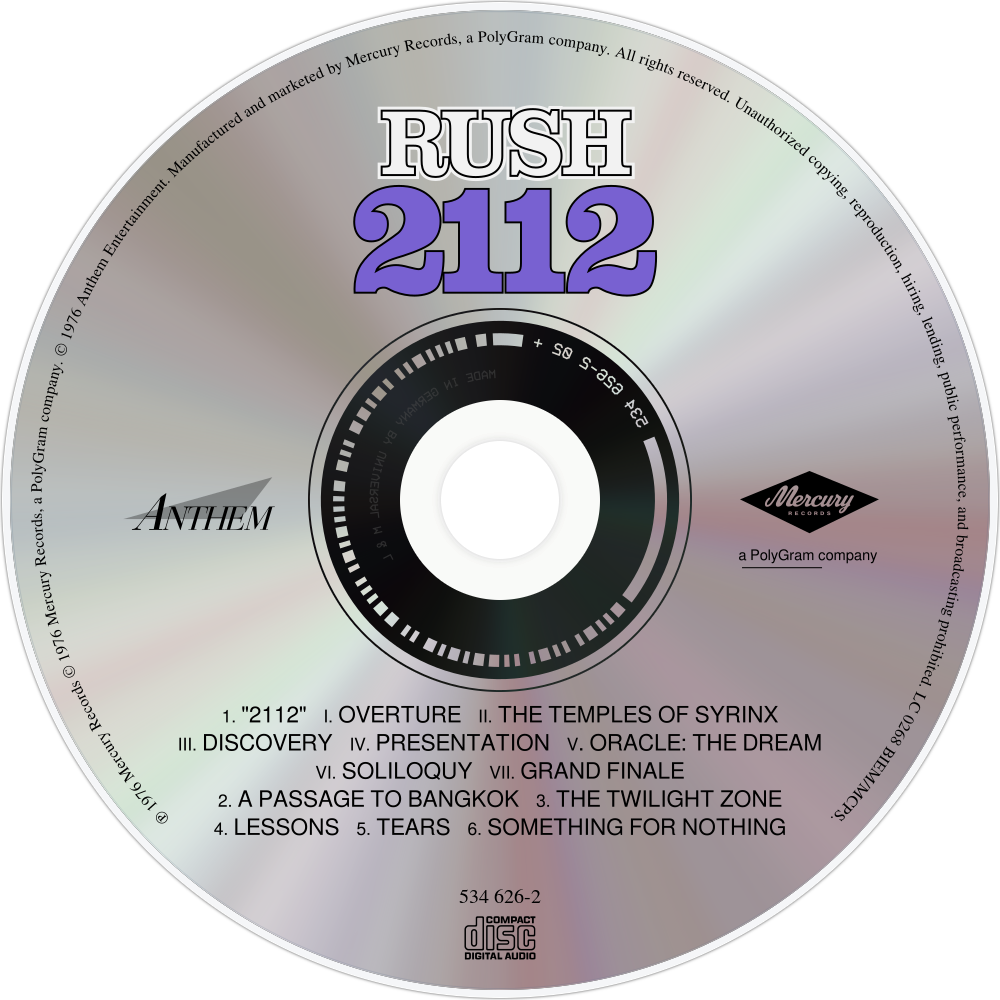Share this article with your network of friends!
For many seniors, the music of their youth holds a special place in their hearts, transporting them back to a time of excitement, exploration, and self-discovery. Among the notable rock albums that have left an indelible mark on the music world, Rush’s 2112 stands as a masterpiece that has captivated generations with its intricate storytelling, progressive rock sound, and enduring themes. Let’s take a journey back in time and explore the significance of this album, its impact on music history, and why it continues to resonate with listeners even today.
A Brief Overview
Released in 1976, “2112” is the fourth studio album by the Canadian rock band Rush. The album consists of a single, ambitious track on the A-side, divided into seven distinct parts, while the B-side includes a collection of shorter songs. At its core, “2112” is a rock opera that tells the story of a dystopian future where individuality and creativity are suppressed by a powerful authoritarian regime. The protagonist discovers a guitar and experiences the liberating power of music, leading to a conflict between personal expression and conformity.
Unveiling the Musical Landscape
“2112” is celebrated for its pioneering sound, often attributed to the virtuosity of the band members: Geddy Lee (vocals, bass, keyboards), Alex Lifeson (guitar), and Neil Peart (drums, percussion). The album merges elements of progressive rock, hard rock, and science fiction themes to create a unique sonic experience. Geddy Lee’s distinct vocals, Alex Lifeson’s intricate guitar work, and Neil Peart’s imaginative drumming contribute to the album’s rich and dynamic atmosphere.
Themes of Individualism and Freedom
One of the album’s central themes is the celebration of individualism and the struggle for creative freedom. In a world where conformity reigns supreme, the discovery of the guitar symbolizes the power of artistic expression. The album’s lyrics encourage listeners to embrace their uniqueness, defy oppressive systems, and seek personal liberation through creativity and art.
Cultural Impact and Enduring Relevance
“2112” was a turning point in Rush’s career, solidifying their reputation as pioneers of progressive rock. The album’s intricate arrangements, thought-provoking lyrics, and powerful melodies resonated with a diverse audience. Despite being released over four decades ago, “2112” remains a quintessential work in the rock genre and a testament to the band’s musical prowess and storytelling abilities.
Listening Experience and Legacy
Listening to “2112” is an immersive experience, transporting listeners to a futuristic realm where soundscapes and emotions collide. The album’s diverse musical sections, ranging from atmospheric to thunderous, create a journey that unfolds over its duration. The impactful message of the album continues to inspire countless listeners, both old and new, to embrace their passions and stand up for their beliefs.
Conclusion
As seniors who have witnessed the evolution of rock music, the album “2112” by Rush serves as a reminder of the power of music to tell stories, provoke thought, and inspire change. Its enduring legacy showcases the timelessness of artistic expression and the relevance of themes like individualism, creativity, and freedom. So, whether you’re revisiting this classic album or discovering it for the first time, let “2112” take you on a musical voyage that transcends time and connects generations through the universal language of rock.
DISCLAIMER: This website contains articles for informational and entertainment purposes only. No articles on this website should be considered as professional advice for any medical, legal, or financial matter. Advertisements and content may contain affiliate links, where the website earns a commission for sales derived from our users.





